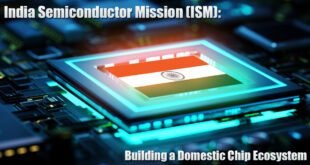The five-time world chess champion remembers his highest and lowest moments Viswanathan Anand is among India’s greatest sportspersons of all time. In 2000, he became the first Asian to win the World Chess Championship. He went on to lift the world title four more times. He is also one of the most durable champions in any sport. Last year, at 48, he won the World Rapid Chess Championship. His greatest contribution, however, is that he almost single-handedly turned India into one of the major powers in chess, by inspiring thousands of children to take up the mind sport as a career. On a pleasant morning at his residence in Chennai, he spoke about his extraordinary career, longevity, triumphs and defeats, and varied interests, including astronomy and books. Excerpts: Before you became a Grandmaster (GM) in 1988, India didn’t have any, but now there are 54. India is ranked sixth in the world among men and seventh among women in chess. It must be gratifying to note that you are largely responsible for all this. Yes, it is. I am proud that I could make a difference to chess in my country and that I could be a catalyst. I remember how unattainable the GM title felt once upon a time. When I played Alexei Shirov for my first world title in Tehran in 2000, I had felt that my time would come, if not then. But I don’t think I could say the same thing about the GM title. I had no way of knowing if I would become a GM or not. It took me two full years to get it. For India to have 54 GMs is a very impressive feat. There was a time when we didn’t really exist in world chess. And chess originated in India. Yes, it feels like chess is coming back home. When [World Chess Champion] Magnus Carlsen was asked — last year, I think — who would be the world champion in 2050, he said, “By that time India will have had many already”. There are also jokes doing the rounds that planes full of Indians are travelling around the world always ready to land for an open tournament. Even in top events, you see Indians like Pendyala Harikrishna, Vidit Gujrathi and Krishnan Sasikiran. And there are some exciting prodigies like R. Praggnanandhaa, who recently became the world’s second-youngest GM, and Nihal Sarin. They are very promising. Maxime Vachier-Lagrave was telling me only recently that he was impressed with Praggnanandhaa. Besides him and Nihal — I was happy to find him raising funds for the Kerala flood victims through YouTube — there are also others like Arvindh Chithambaram, P. Iniyan and Karthikeyan Murali. You broke into the world top 10 for the first time in 1991 and you are still there. When I got there in 1991, I was just thrilled to be in the top 10. I remember that whole year and 1990 as well, when I qualified for the Candidates tournament [qualifying event for the World Chess Championship] from Manila. That whole period was just wonderful. At that time, I didn’t think that I would still be among the world’s elite 25 years later. It is a great feeling that I am still in the top 10, that I continue to play chess and enjoy it, though my perspective has changed. Becoming the world champion was more important, but being in the top 10 shows that I have been consistent. When I got into the top 10, I was thinking what are the things I would accomplish. Becoming the world champion must have been one of those things, which you did in New Delhi-Tehran in 2000. What I most strongly remember from that tournament, though, is the nightmare I had against Alexander Khalifman in the quarterfinals. And it happened on my birthday. The whole morning I was trying to avoid people [because] I didn’t want them to wish me. A birthday will happen whether you make an effort or not. I was the best-performing player in the tournament, having won my matches without difficulty. But against Khalifman, there were a few moments when I was facing certain defeat. It looked as though I was giving everything away and I would have to wait for another year and a half for another crack at the world title. But a miracle happened. He made a mistake and I won the match. It is almost two decades since. What keeps you going? I still like playing. I know that in order to like playing, I must be able to play reasonably well, and for that I have to make efforts. And it is the efforts that you make in any field that make the successes rewarding. I continue to find chess fascinating. There are so many new things to learn. I find it extremely challenging to compete with all these youngsters. I am nearing 50 and they are in their 20s and 30s.
Check Also
India Semiconductor Mission (ISM): Building a Domestic Chip Ecosystem
Introduction The Indian government, recognizing the critical role of semiconductors in the digital age, launched …
 Chinmaya IAS Academy – Current Affairs Chinmaya IAS Academy – Current Affairs
Chinmaya IAS Academy – Current Affairs Chinmaya IAS Academy – Current Affairs



